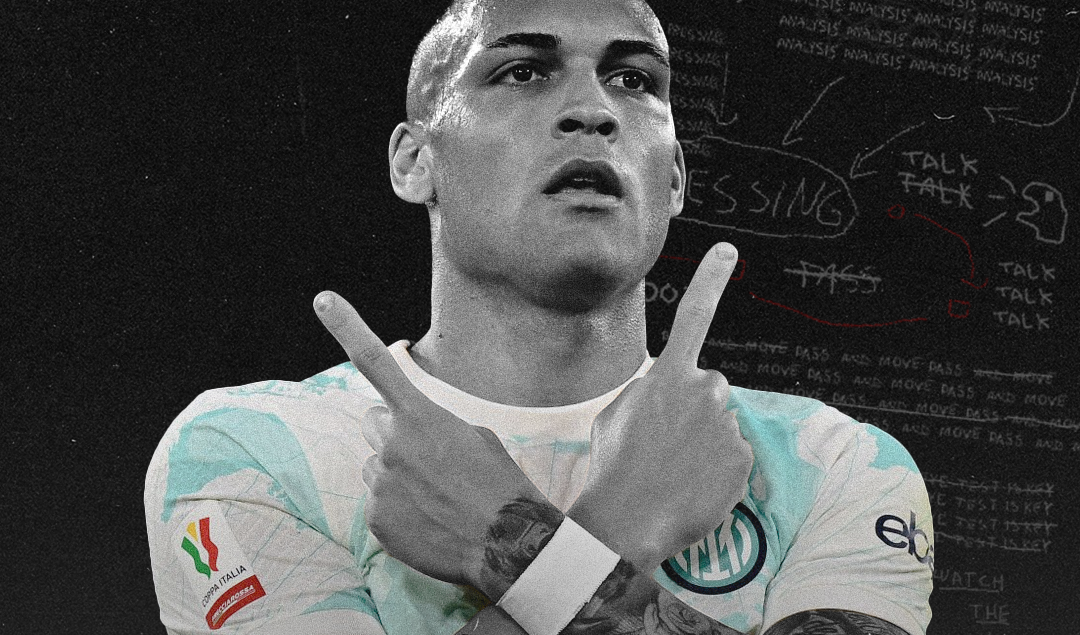The Future of the Big Grass Snake: Inter’s Ownership Saga With Steven Zhang
On the surface, you’d think Simone Inzaghi’s Inter Milan are looking at a bright future. Winning Serie A in 2021, the Coppa Italia in 2022 and 2023 and sealing a sixth consecutive top-four finish and Champions League qualification, they are now setting their sights on their biggest match in over a decade as Pep Guardiola’s Manchester City await them in the Champions League Final. However, a number of lurking realities are slowly catching up to the club, building a wall of uncertainty at the Italian giants.
The Cessation of Chinese Investment in Football
We’ll start off with their ownership situation. Steven Zhang is the current owner and the son of the founder of Suning Group, which took a massive hit in recent years. Former Chinese Super League champions, Jiangsu FC, who were owned by the Suning Group, abruptly dissolved their operations as a football club just three months after being crowned the Chinese football champions.
Subsequent to their 2015 takeover of Jiangsu, the Suning Group became an angel investor of Shanghai Chuangbing Information Technology Co., Ltd, a company specializing in sports statistical analysis and embarked on a tirade of signing foreign players to lead like Alex Teixeira, to lead their eventual charge to the CSL title.
9. Inter Milan and Paris Saint-Germain: two clubs at a crossroads.@HE_Ftbl takes a look at both clubs on the latest episode of The Fixture Congestion Podcast with @EuroExpert_ and @DougieCritchley:
Apple: https://t.co/MKva66c1eK
Spotify:https://t.co/qmPOYorlM4 pic.twitter.com/QNlqLGQkFP
— Breaking The Lines (@BTLvid) May 12, 2023
While it’s important to understand that Chinese investment in football has seen a sharp reduction in recent years, as the Chinese government’s incredibly ambitious goals to reach the zenith of club and international football have been cooled, it is just as important to be cognizant to the fact that severe mismanagement and incompetence has led to collapse felt by CSL clubs and in foreign investments like in Inter Milan’s case.
In addition, the direction of state investment has shifted firmly away from football for the East Asian superpower, which means owners and sponsors are scaling back the amounts they can pump into clubs like Inter. The total liabilities of the club stand at around $800 million, with around $250 million of that being in the form of short-term loans, which need to be repaid by 2024, or else Howard Mark’s Oaktree Capital, the investment firm who bailed out Inter, will get the keys to the club, in a style not too dissimilar to how their rivals, AC Milan, were taken over by Paul Singer’s Elliot Management.
Contractual and Stadium Woes
Moreover, the recent stadium redevelopment plans for the San Siro have also ground to a halt, with AC Milan reportedly striking out on their own in order to construct their own venue. The general issue with Italian stadiums is that they are owned by their respective cities and not their respective clubs.
Thus, local councils have no interest in helping clubs build their own venues, which would take a big chunk of revenue from the cities and more often than not, put up bureaucratic hurdles in the path of clubs looking to build their own stadium. In Milan, things are no different, with the city earmarking the stadium for the opening ceremony of the 2026 Winter Olympics.
War Heroes, Wheeler-Dealers, Fake Sheikhs and Consulting Detectives on the South Coast of England
Crucially, these issues are greatly diminishing Inter’s appeal for prospective new owners, with Zhang holding out for a reported $1 billion price tag. Combine that with the massive debt and the stadium redevelopment and you end up in a financial ballpark where other clubs like Manchester United and Liverpool reside. On the pitch, things aren’t looking much better, with the combined age of their squad in a recent game against Spezia being 31, which is massive even for Serie A.
The summer of 2023 will see Samir Handanovic, Stefan De Vrij, Danilo D’Ambrosio, Edin Dzeko and Milan Skriniar become free agents, with Francesco Acerbi and Romelu Lukaku returning to parent clubs Lazio and Chelsea. Skriniar, who has emerged as a bedrock in defense since his arrival from Sampdoria in 2017, looks set to join PSG on a free transfer, whilst Inter are working on making Acerbi’s loan deal permanent. The 35-year-old has proven indispensable in the back three since arriving on deadline day, relegating De Vrij to the bench and playing a key role in Inter’s impressive turnaround in the past few months.
While the Skriniar situation was hastily handled by the club, the future of the rest is still inconclusive. Fast forwarding to summer 2024 when the contracts of Alessandro Bastoni, Henrikh Mkhitaryan and Hakan Calhanoglu are also expiring, and the spine of this squad looks in danger of disappearing. Bastoni’s contract situation is particularly worrying since he is not only one of the most sellable assets but also one of their best players. Two summers of upheaval will follow and Inter will have to work miracles in order to balance the need for debt repayment and replacing key players, all whilst ensuring their league form doesn’t drop off too dramatically.
Apart from a 3-1 loss to Napoli on May 21, which saw Inter field a second-choice line-up and fall down to 10 men before the break, the Nerazzurri have won each of their last 11 matches in all competitions, including a 2-1 win against Fiorentina in the Coppa Italia Final. They have brushed past Barcelona, Porto, Benfica and Milan en route to reaching the Champions League Final, and after closing out their domestic season with a 1-0 win at Torino, they will be taking on Manchester City in Istanbul. However, whilst Inter could very well end the season with a fourth European Cup, their off-the-field issues will not be going away anytime soon.
By: Eduard Holdis / @He_Ftbl
Featured Image: @GabFoligno / Mattia Ozbot – Inter / FC Internazionale
